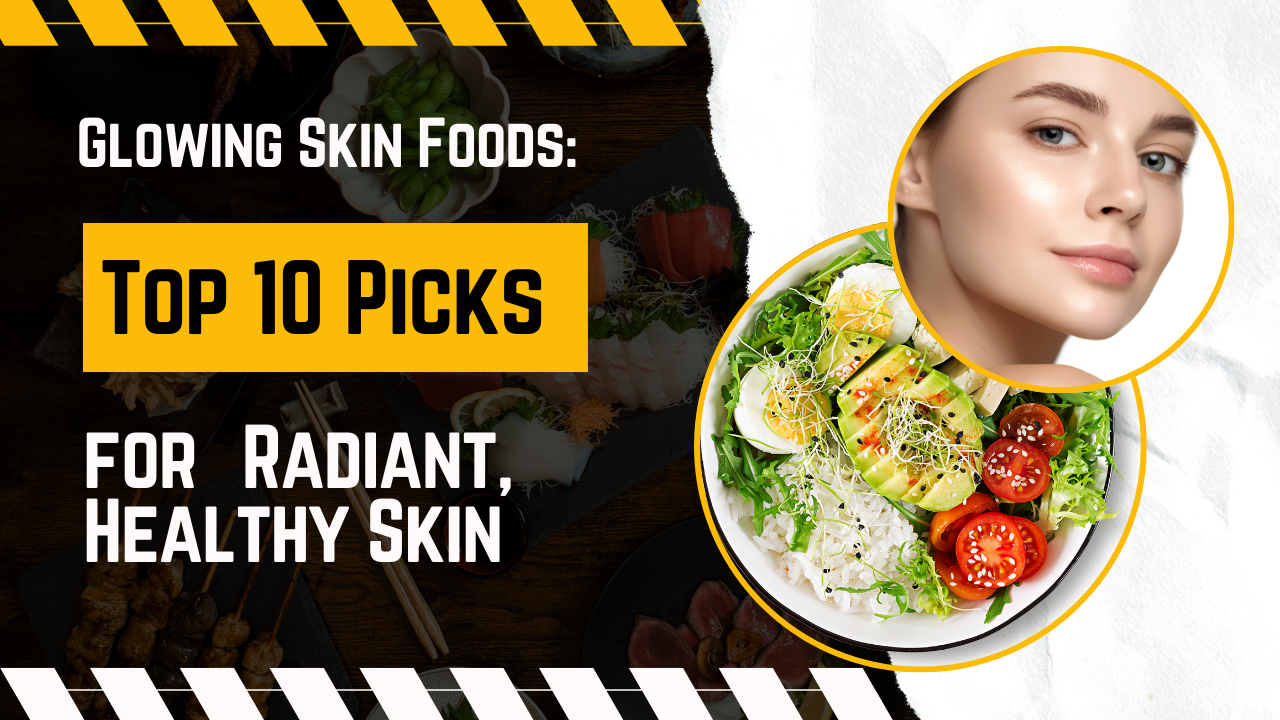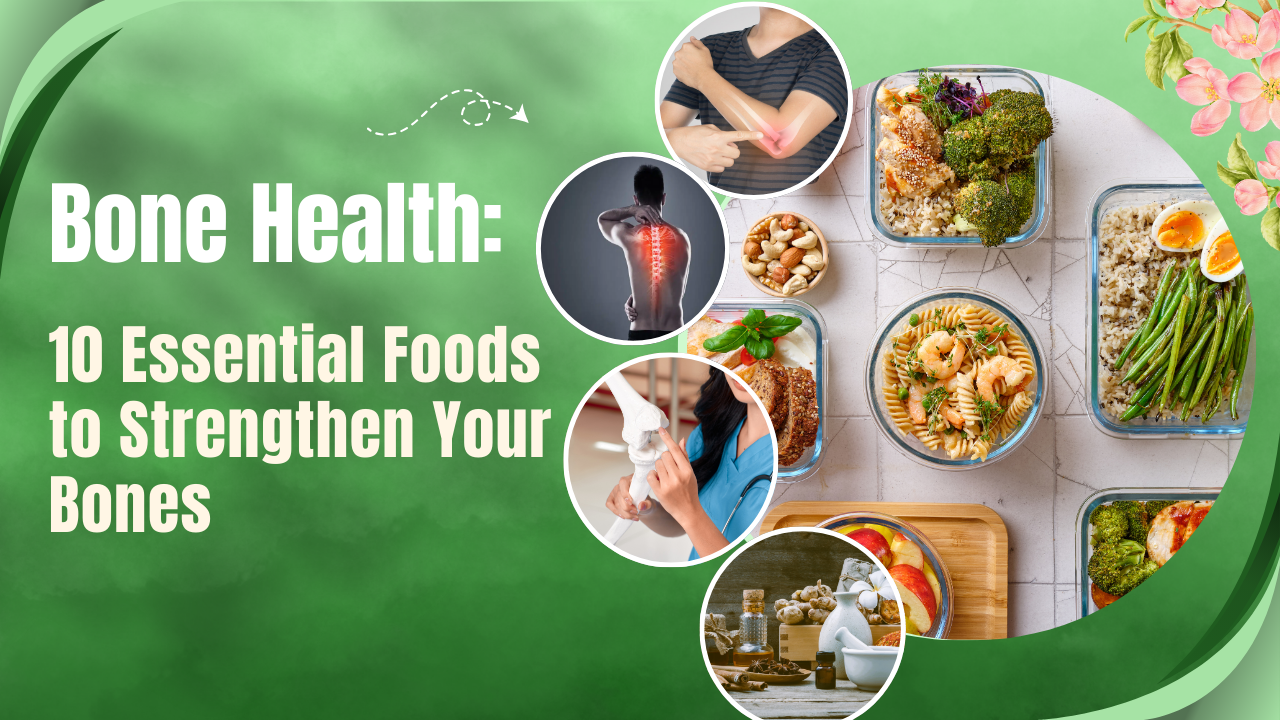Skincare is more than just using the right creams or cleansers. It’s a full-body approach that includes how you treat your skin on the outside and what you feed your body on the inside. External care like using a gentle cleanser, good moisturizer, sunscreen, and serums is essential—but it’s only one part of the routine.
What you eat also plays a major role in how your skin looks and feels. A diet rich in vitamins, antioxidants, and healthy fats can do wonders for your skin’s health. It can help you get a glowing complexion, reduce breakouts, and support overall skin balance.
Since your skin is the largest organ of the body, it often shows signs of what’s going on inside. Poor eating habits may lead to dullness, dryness, or acne, while healthy foods can improve texture, slow signs of aging, and help maintain a clear, vibrant appearance. Your diet truly shows on your skin.

Skincare Aspects You Should Know
To fully understand how food affects the skin, it helps to understand the primary aspects of skincare:
Hydration Support: Proper hydration is a crucial element in achieving and maintaining glowing skin. When your body is dehydrated, your skin can become dry, lackluster, and appear fatigued. By drinking enough water throughout the day, you help keep your skin plump, smooth, and radiantly healthy, promoting a natural glow.
Collagen Maintenance: Collagen is an essential protein that gives skin its structure, firmness, and youthful appearance. As we get older, the natural production of collagen in the body declines, which can lead to sagging and wrinkles. However, a diet rich in specific nutrients can help support collagen production, contributing to firmer, smoother, and glowing skin as you age.
Antioxidant Defense: Our skin is constantly exposed to environmental stressors like pollution and UV rays, which generate harmful free radicals that damage skin cells. Incorporating antioxidant-rich foods like berries, green vegetables, and nuts into your diet can help neutralize the effects of these free radicals, allowing your skin to remain protected and retain its youthful, glowing skin appearance.
Inflammation Reduction: Chronic inflammation can lead to various skin issues, including acne, redness, and premature aging. Consuming foods with anti-inflammatory properties, such as omega-3 fatty acids found in fish and nuts, can help calm the skin, reduce redness, and promote glowing skin by supporting skin healing and rejuvenation.
Oil Barrier Balance: Essential fatty acids play a critical role in maintaining the skin’s natural oil barrier. This protective barrier helps lock in moisture and shields the skin from environmental irritants. When balanced, it prevents dryness and irritation, ensuring your skin stays hydrated, soft, and glowing throughout the day.
Top 10 Foods for Glowing Skin
Maintaining radiant, youthful skin isn’t just about using topical creams or serums—true skin health begins on the inside. The nutrients you feed your body directly impact your skin’s ability to repair, hydrate, and protect itself. Below is a carefully curated list of ten powerful foods that contribute to naturally glowing, healthy skin.
Avocados – The Skin’s Moisturizing Superfood
Avocados are a highly beneficial food for achieving healthy, glowing skin. Packed with healthy monounsaturated fats, particularly oleic acid, they help lock in moisture within the epidermal layer of your skin, preventing dryness and keeping your skin supple. These creamy fruits are also rich in vitamin E, a potent fat-soluble antioxidant that protects your skin from damage caused by environmental stressors such as pollution and harmful UV rays. This helps maintain the skin’s integrity, reducing the appearance of fine lines and promoting a smoother complexion. Additionally, avocados contain vitamin C, which is essential for collagen production. Collagen is a key structural protein that supports skin elasticity and firmness, playing a vital role in keeping your skin smooth, youthful, and radiant.

Benefits of Avocados for Glowing Skin:
Monounsaturated fats (oleic acid) help retain moisture in the skin, preventing dryness.
Vitamin E acts as a strong antioxidant, protecting skin from environmental damage like sun exposure and pollution.
Vitamin C boosts collagen production, which supports skin firmness and smoothness.
Helps reduce the appearance of fine lines and wrinkles, promoting a youthful complexion.
Contributes to overall skin health, leaving it soft, hydrated, and glowing.
Fatty Fish – Omega-3 Power for Skin Health
Fatty fish like salmon, mackerel, and sardines are not only delicious but also incredibly beneficial for skin health due to their high omega-3 fatty acid content. Omega-3s play a crucial role in maintaining the skin’s lipid barrier, which helps lock in moisture and protect against dehydration. This protective barrier also helps calm inflammation, which is important for preventing skin irritation and redness. By incorporating these fatty fish into your diet, you can soothe inflammation, reduce the appearance of acne, and promote an even skin tone. Additionally, these fish are rich in zinc and vitamin E, both of which contribute to regulating oil production and protecting the skin from the signs of aging, ensuring your skin stays smooth, clear, and youthful-looking.
Benefits of Fatty Fish for Skin Care:
Omega-3 fatty acids maintain the skin’s lipid barrier, preventing dehydration and inflammation.
Help soothe inflammation, reducing redness and irritation associated with acne.
Promote a more even skin tone, making the complexion look healthier.
Zinc and vitamin E regulate oil production and protect against premature aging.
Keep skin smooth, clear, and youthful, reducing signs of aging and skin damage.
Sweet Potatoes – Nature’s Retinol Alternative
Sweet potatoes, with their vibrant orange color, are not just a tasty treat but a powerhouse for skin health. Rich in beta-carotene, a potent antioxidant, sweet potatoes support the skin by boosting the growth and regeneration of healthy skin cells. Beta-carotene is converted into vitamin A within the body, which is essential for maintaining youthful, smooth skin. This vitamin A also acts as an internal sunscreen, helping to protect the skin from the damaging effects of UV rays. By incorporating sweet potatoes into your diet, you can support your skin’s natural defenses, while also promoting a warm, golden glow that enhances your complexion.

Benefits of Sweet Potatoes for Skin Care:
Beta-carotene is a powerful antioxidant that helps protect skin from sun damage.
Converted to vitamin A, which supports the growth and turnover of healthy skin cells.
Acts as an internal sunscreen, helping shield the skin from UV exposure.
Promotes a warm, golden glow, giving your complexion a radiant, healthy appearance.
Supports overall skin health, helping to keep it smooth and youthful-looking.
Walnuts – Skin-Loving Micronutrient Giants
Walnuts stand out among nuts due to their unique combination of omega-3 and omega-6 fatty acids, both of which play an essential role in supporting healthy skin. These healthy fats help regulate inflammation, ensuring the skin stays soft, smooth, and well-moisturized. The omega-3s in walnuts are particularly beneficial in soothing irritation, while omega-6s help maintain the skin’s natural barrier. Additionally, walnuts are rich in zinc, a vital mineral that aids in wound healing, reduces acne flare-ups, and supports the overall integrity of the skin. Alongside zinc, walnuts contain powerful antioxidants like vitamin E and selenium, which strengthen the skin’s defenses, protecting it from oxidative stress caused by environmental factors and aging.
Benefits of Walnuts for Skin Care:
Omega-3 and omega-6 fatty acids help regulate inflammation, keeping the skin soft and smooth.
Zinc supports wound healing, reduces acne flare-ups, and maintains skin integrity.
Vitamin E and selenium act as antioxidants, protecting the skin from oxidative stress.
Help maintain a healthy, moisturized skin barrier, reducing skin irritation.
Strengthen the skin’s defense system, keeping it resilient and youthful.
Berries – Antioxidant-Rich Beauty Boosters
Berries, including blueberries, strawberries, and blackberries, are packed with powerful antioxidants, such as anthocyanins and vitamin C, which are crucial for maintaining healthy, youthful skin. These antioxidants help neutralize free radicals—unstable molecules that can break down collagen and contribute to premature wrinkles and fine lines. By regularly including berries in your diet, you can help protect your skin from oxidative stress, which is one of the key factors in aging and skin damage. The antioxidants in berries also support brighter skin by reducing inflammation, which is particularly beneficial for those with acne-prone or sensitive skin, helping to calm irritation and promote a clearer, more even complexion.

Benefits of Berries for Skin Care:
Anthocyanins and vitamin C act as antioxidants, neutralizing free radicals that damage collagen.
Help reduce the formation of wrinkles by protecting collagen and preventing skin breakdown.
Promote brighter skin by reducing oxidative stress and supporting skin vitality.
Reduce inflammation, making berries especially useful for acne-prone or sensitive skin.
Improve skin elasticity, keeping skin firm and youthful-looking over time.
Leafy Greens – The Detoxifying Skin Elixir
Dark leafy greens such as spinach, kale, and Swiss chard are incredibly beneficial for achieving a healthy, glowing complexion. These vegetables are packed with essential nutrients like chlorophyll, vitamin K, folate, iron, and magnesium, which help detoxify the body by cleansing the blood and reducing inflammation. Regular consumption of these greens can help diminish puffiness and promote smoother, more even skin. Additionally, they are rich in vitamin A, which supports the renewal of skin cells, and vitamin C, which plays a vital role in collagen production and stabilization, helping to maintain skin’s elasticity and firmness.
Benefits of Dark Leafy Greens for Skin Care:
Chlorophyll, vitamin K, folate, iron, and magnesium help detoxify the body and cleanse the blood.
Reduce puffiness and promote a smoother, more even skin surface.
Vitamin A supports skin cell renewal, promoting healthy skin regeneration.
Vitamin C helps in the production and stabilization of collagen, supporting skin elasticity.
Contribute to a glowing complexion, improving overall skin health.
Tomatoes – The Natural UV Shield
Tomatoes are a fantastic addition to any diet, especially for those looking to improve their skin health. They are rich in lycopene, a powerful antioxidant known for its ability to protect the skin from UV damage and photoaging, helping to prevent sunburn and premature aging caused by prolonged sun exposure. Interestingly, lycopene becomes even more potent when tomatoes are cooked or consumed with healthy fats like olive oil, enhancing its skin-protecting benefits. Beyond lycopene, tomatoes also contain significant amounts of vitamin C and potassium, which play key roles in keeping the skin firm, smooth, and hydrated. Vitamin C supports collagen production, contributing to skin elasticity, while potassium helps maintain moisture levels, ensuring your skin stays hydrated and plump.
Benefits of Tomatoes for Skin Care:
Lycopene is a powerful antioxidant that protects the skin from UV damage and photoaging.
Lycopene becomes more effective when cooked or paired with healthy fats like olive oil.
Vitamin C supports collagen production, helping to maintain skin elasticity and firmness.
Potassium helps keep the skin hydrated and ensures moisture retention.
Promotes a smooth, firm, and radiant complexion by reducing the effects of sun exposure.
Green Tea – Calming Elixir for Skin Inflammation
Green tea has long been celebrated in the skincare community for its numerous benefits, thanks to its high concentration of catechins—natural plant compounds that play a key role in enhancing blood flow and oxygen delivery to the skin. This improved circulation helps nourish the skin from within, promoting a healthier complexion. The anti-inflammatory properties of green tea are especially beneficial for reducing puffiness, soothing irritated skin, and helping to control acne breakouts. Regularly drinking green tea can significantly improve the skin’s elasticity, making it firmer and more resilient. Over time, this can lead to a noticeable reduction in the appearance of fine lines and other signs of aging, giving the skin a youthful, vibrant glow.

Benefits of Green Tea for Skin Care:
Catechins improve blood flow and oxygen delivery, nourishing the skin from the inside.
Anti-inflammatory properties reduce puffiness, soothe irritation, and combat acne.
Drinking green tea regularly can improve skin elasticity, making it firmer and more youthful.
Helps reduce the appearance of fine lines and other signs of aging.
Promotes a healthier, vibrant complexion with regular consumption.
Seeds & Nuts – Tiny Sources of Big Nutrition
Flaxseeds, sunflower seeds, chia seeds, and almonds may be small in size, but they pack a powerful punch when it comes to supporting skin health. These seeds are packed with essential nutrients like vitamin E, selenium, and zinc, which are crucial for protecting the skin from free radical damage caused by environmental stressors such as pollution and UV exposure. Vitamin E acts as a potent antioxidant, while selenium and zinc help strengthen the skin’s defenses and promote healing. Additionally, flaxseeds and chia seeds are rich in plant-based omega-3 fatty acids, which are excellent for moisturizing the skin from within, helping to reduce dryness and flakiness, and leaving your complexion looking smooth and hydrated.
Benefits of Seeds for Skin Care:
Vitamin E, selenium, and zinc protect the skin from free radical damage and environmental stress.
Vitamin E acts as an antioxidant, strengthening the skin’s defenses.
Selenium and zinc help promote skin healing and maintain its overall health.
Flaxseeds and chia seeds contain plant-based omega-3s, which hydrate and moisturize the skin.
Help reduce dryness and flakiness, leaving the skin looking smooth and nourished
Dark Chocolate – A Tasty Skin Treat
Dark chocolate, particularly with at least 70% cocoa, can actually offer some remarkable benefits for your skin. Rich in flavonoids, dark chocolate helps to increase skin density and improve hydration, ensuring that your skin stays nourished and moisturized. These flavonoids also enhance blood circulation to the skin’s surface, which can promote a healthier, more radiant complexion. Additionally, dark chocolate may help your skin better defend itself against sun damage, providing some natural protection from UV rays. However, it’s important to consume dark chocolate in moderation, as excessive sugar intake can counteract the positive effects, potentially leading to skin issues like breakouts and inflammation.
Benefits of Dark Chocolate for Skin Care:
Flavonoids in dark chocolate increase skin density and hydration.
Enhances blood circulation to the surface of the skin, promoting a radiant complexion.
Helps the skin protect itself from sun damage.
Moderate consumption can benefit the skin, but too much sugar can have negative effects.
Enjoyed in moderation, dark chocolate can contribute to a healthy, glowing appearance.
Final Thoughts

Glowing skin is a direct reflection of a healthy, well-balanced lifestyle. By incorporating nutrient-dense foods into your daily meals, you’re providing your skin with the essential vitamins, minerals, and antioxidants it needs to stay radiant and youthful. These foods nourish the skin from the inside, promoting hydration, reducing inflammation, and enhancing overall skin health.
To achieve the best results, it’s important to combine these nutrient-rich foods with other key factors like staying hydrated, getting quality sleep, and managing stress levels. Hydration helps maintain your skin’s moisture balance, while rest allows your body to repair and rejuvenate overnight. Stress management, on the other hand, reduces the impact of stress hormones that can negatively affect your skin.
Ultimately, beautiful, glowing skin starts from within. A holistic approach that includes healthy eating, hydration, proper sleep, and stress control will ensure your skin looks its best for years to come.
FAQs
Q1: How long does it take for diet changes to improve glowing skin ?
Answer: Achieving glowing skin through dietary changes usually takes about 4 to 6 weeks, depending on your skin’s condition and how consistently you follow a nutrient-rich routine. Since the skin renews roughly every 28–40 days, the benefits of a skin-friendly diet typically become visible after one full skin cycle.
Q2: Can eating oily or fried foods affect glowing skin ?
Answer: Yes, consuming excessive oily or fried foods can lead to breakouts, inflammation, and dullness, which can hinder your goal of achieving glowing skin. These foods may clog pores and disrupt hormonal balance, while healthier options support clear, radiant skin.
Q3: Are supplements necessary for glowing skin, or is food enough ?
Answer: For glowing skin, whole foods are usually more effective than supplements because they provide a natural combination of vitamins, minerals, fiber, and antioxidants. Supplements can be helpful for addressing specific deficiencies but should complement, not replace, a balanced diet.
Q4: Does drinking water help maintain glowing skin ?
Answer: Absolutely. Staying well-hydrated is essential for glowing skin. Water helps flush out toxins, keeps your skin cells plump, and maintains moisture levels—resulting in a smoother, more radiant complexion.
Q5: What foods should I avoid if I want glowing skin ?
Answer: To promote glowing skin, it’s best to reduce your intake of refined sugar, processed snacks, dairy (if you’re sensitive), and alcohol. These foods can contribute to inflammation and breakouts, while whole, antioxidant-rich foods support a brighter, healthier glow.




